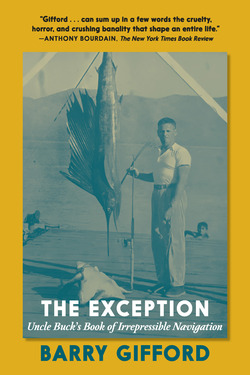In Writers, great American storyteller Barry Gifford paints portraits of famous writers caught in imaginary vulnerable moments in their lives. In prose that is funny, grotesque, and a touch brutal, Gifford shows these writers at their most human, which is to say at their worst: they are liars, frauds, lousy lovers, and drunks.
This is a world in which Ernest Hemingway drunkenly sets explosive trip wires outside his home in Cuba, Marcel Proust implores the angel of death as a delirious Arthur Rimbaud lies dying in a hospital bed, and Albert Camus converses with a young prostitute while staring at himself in the mirror of a New York City hotel room.
In Gifford's house of mirrors, we are offered a unique perspective on this group of literary greats. These stories, meant to be performed as plays, are tender and thoughtful exercises in empathy. Obsessions loom large, especially a preoccupation with death. Gifford asks: What does it mean to devote oneself entirely to art? And as an artist, what defines failure, or success?
This edition of Writers includes five new pieces, featuring Georges Simenon with André Gide, Franz Kafka with Marcel Proust, Flannery O’Connor with William Burroughs, Ivan Turgenev with Fyodor Dostoyevsky, Joseph Conrad with D.H. Lawrence, and Willa Cather with Gypsy Rose Lee.
Introducing Three Cheers: a new feature on the Seven Stories Blog. In this feature, Seven Stories authors dish on three books that helped to mold them over the course of their careers. Check out Barry Gifford's choices below!
by Barry Gifford
Grande Sertao: Veredas (Translated into English as The Devil to Pay in the Backlands by Harriet de Onis). Certainly the greatest of all Portuguese language novels, a truly transformative novel; a unique, surprising narrative that rivals Don Quixote for creativity and meaning. Written by Joao Guimaraes Rosa, Brazilian professor and diplomat.
The Adventures & Misadventures of Maqroll the Gaviereo (Translated from Spanish by Edith Grossman) by Alvaro Mutis, a Colombian raised in Belgium and Colombia and Mexico, best friend of Gabriel Garcia Marquez, who called Mutis the finer writer. Marquez was correct: Mutis’s Maqroll novellas are the finest kind of literary adventures. A vastly underrated if not mostly unknown (in the English-speaking and -reading world) master of prose and poetry.
The Collected Novels of Jean Rhys Another mostly undervalued (and misinterpreted) writer. Her novels After Leaving Mr. Mackenzie and Good Morning, Midnight (quote from Emily Dickinson, I believe) are especially good. She did not waste words: taught me how to be concise and direct without sacrificing intent and meaning. Hated being taken up in 1960s and ‘70s by feminists—resented is better word. Once a mistress of Ford Madox Ford’s, she picked up on what the big guns of the ‘20s and ‘30s had to say (Hemingway, Conrad, Pound, et al) and in my opinion outdid them all—except maybe Conrad.


























